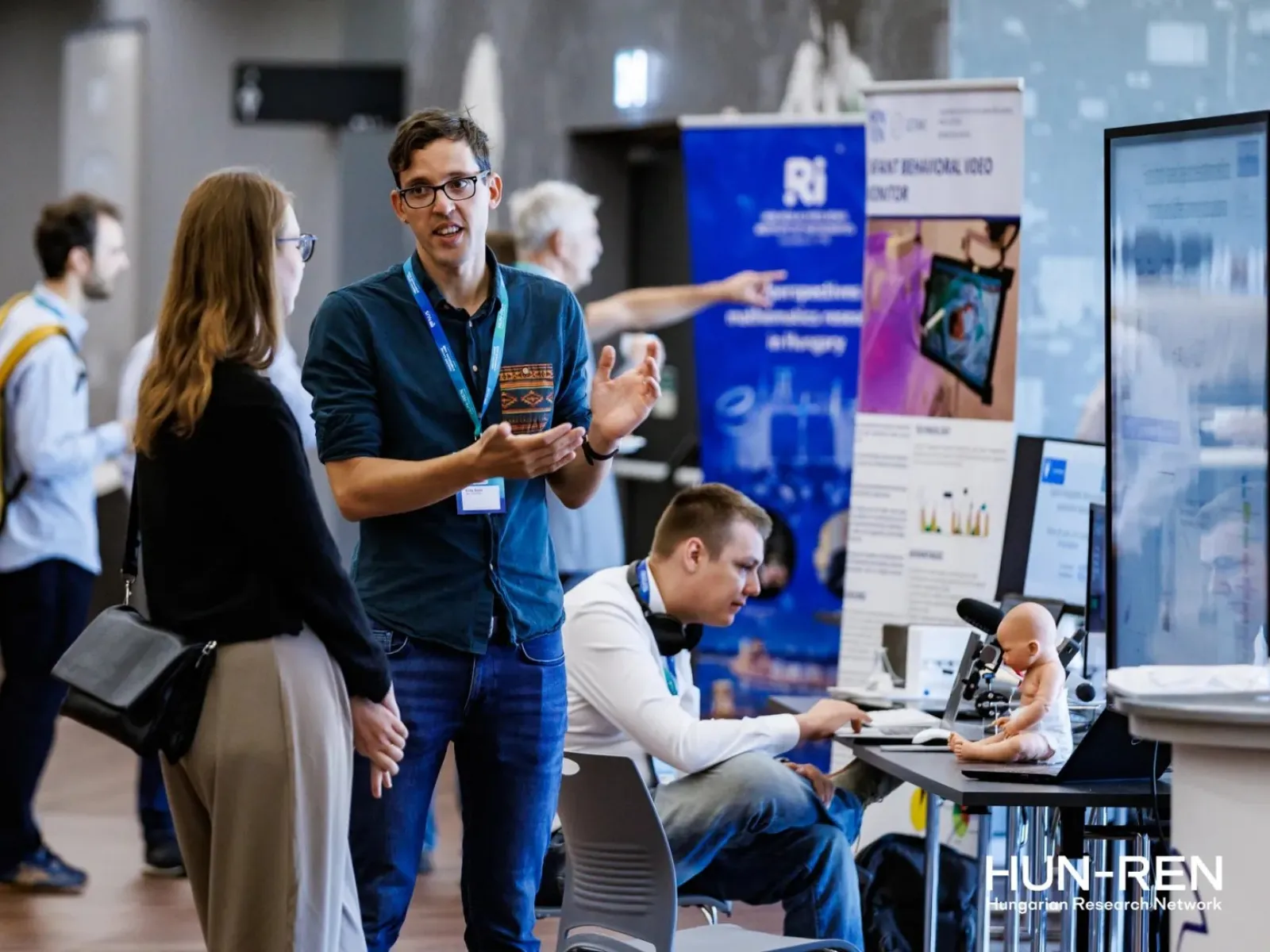
At the three-day event, Csaba Kerepesi, head of the BioAgeAI research group at the Artificial Intelligence Laboratory, took part in the thematic roundtable discussion titled “AI in Medicine.” Researchers from HUN-REN SZTAKI and MILAB presented several of their projects related to healthy living: visitors could explore the holographic microscope, the AI-powered infant incubator, and even assess their biological age. Attendees also had the chance to meet HUN-REN SZTAKI’s robot dog and learn about the developments connected to it.
A long, healthy and fulfilling life is not only a medical matter but also a social, cultural and community issue. This is why international cooperation among researchers, innovators and decision-makers across disciplines is essential. The Healthy Living Symposium, jointly organised by the HUN-REN Hungarian Research Network and the National University of Singapore (NUS), has laid the groundwork for such cooperation. It is in our shared interest to build on the results and body of knowledge generated at the Healthy Living Symposium to set new goals and take further steps. We must turn knowledge into action and research findings into practical applications and innovations. HUN-REN’s mission is to organise the knowledge within the Hungarian research network and the inspiring ideas raised here into a research programme that will benefit society, said Balázs Gulyás, President of HUN-REN, in his closing address at the symposium.
He reaffirmed HUN-REN’s commitment to advancing health research by integrating insights from international models with Hungary’s specific context, and to exploring new pathways towards healthier lives by drawing on psychology, neuroscience and Hungarian cultural values. Roland Jakab, CEO of HUN-REN, described the symposium — which featured inspiring talks, thought-provoking discussions and new opportunities for cooperation — as a celebration of science. ‘Together, we can initiate paradigm shifts and rethink health, science and innovation. We can shape a future in which discoveries do not remain confined to laboratories but become tangible solutions for society,’ he said. He placed particular emphasis on the role of artificial intelligence in healthcare, which has already become part of everyday practice. ‘Artificial intelligence accelerates research and is a new ally in medicine,’ he said. He added that, when guided by human responsibility and creativity, technology can be a true partner in building healthier lives.